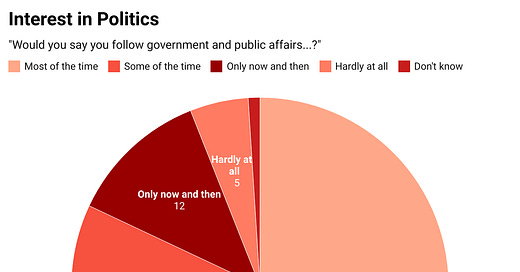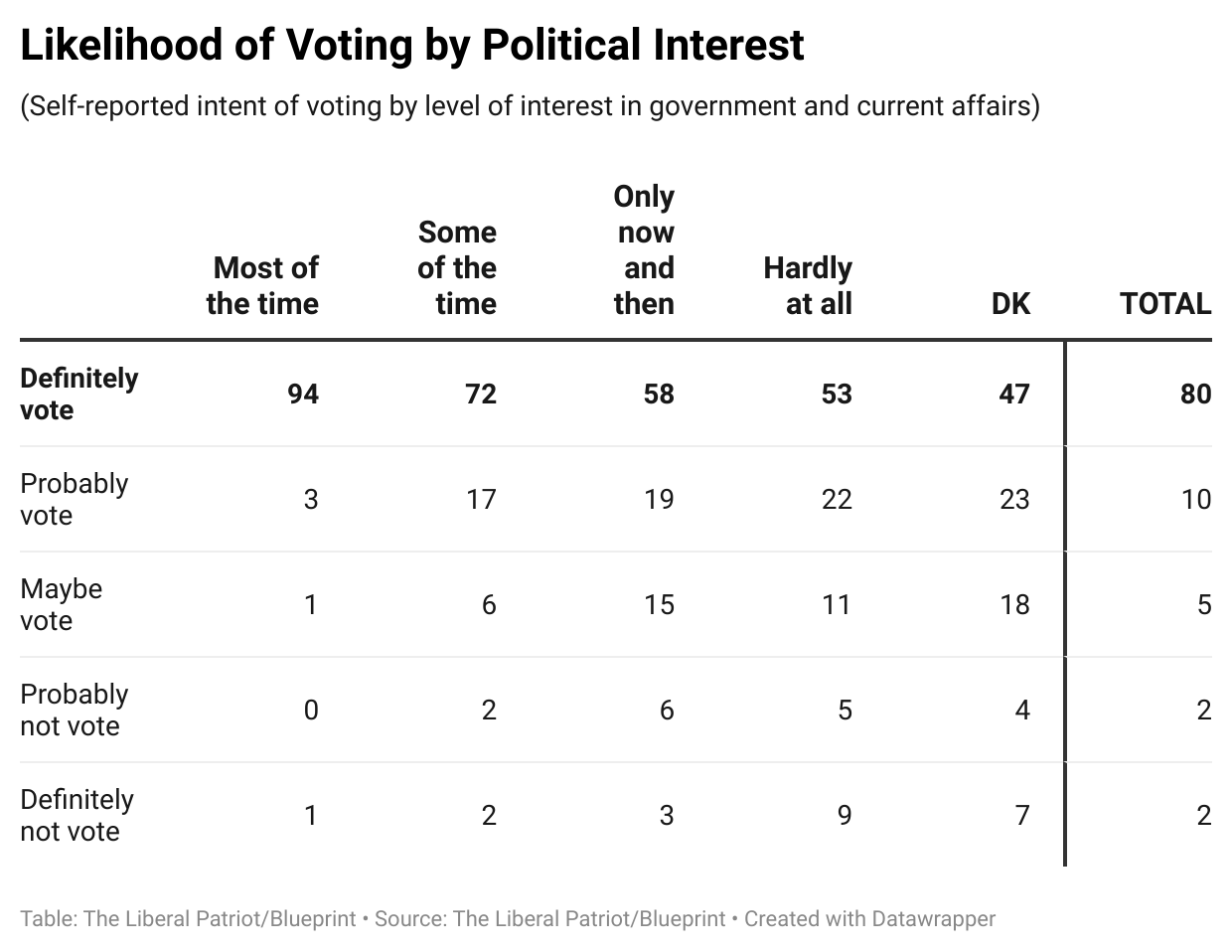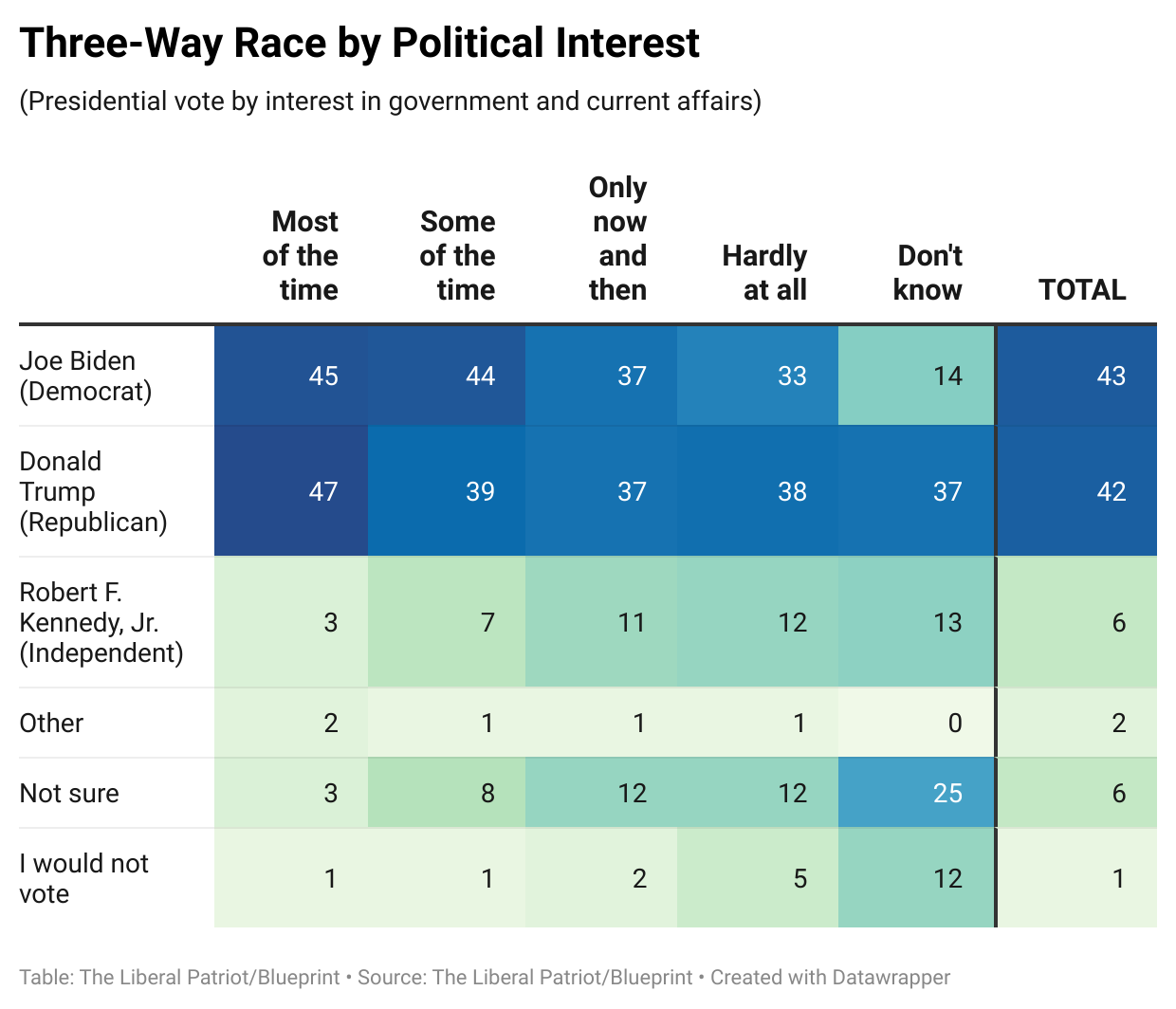How Political (Dis)Interest Will Shape 2024
Disengaged Americans don't care much for normal politics. But they do care greatly about inflation.
With five months left to go in a presidential election that has generated scant voter enthusiasm, the outcome of the race could eventually turn on what the most disinterested people in America decide to do by November.
Will these disengaged Americans vote at all? If so, will they back either Biden or Trump? Or will they perhaps turn to RFK, Jr. or another third-party candidate?
In a race that is still essentially a toss-up—with Trump holding a narrow advantage nationally and slightly better margins in several battleground states according to polling averages—the late movement and decisions of the least engaged and most politically disinterested people in America will matter a great deal.
What do we know about these voters today? Looking at TLP’s recent polling conducted with our partners at Blueprint and YouGov, we have some insights into how this group might behave. For context, as the pie chart below shows, around half of all registered voters report following government and public affairs “most of the time” with the remaining half saying they follow politics “some of the time” (31 percent), “only now and then” (12 percent), or “hardly at all” (5 percent).
In terms of self-reported intention of voting in the 2024 election, we find clear evidence that the likelihood of voting goes down with waning interest in politics.
As seen in the table below, more than nine in ten voters who follow government and public affairs most of the time say they will “definitely vote” this year compared to around seven in ten of those who follow political affairs some of the time and around six in ten who pay attention only now and then. In contrast, just over half of those registered voters who follow government and public affairs hardly at all say they will definitely vote this year—40 points lower than the likelihood of voting among the most engaged Americans.
Examining a three-way vote choice, we find that those voters paying the least amount of attention to government and public affairs are much more likely to say they will vote for RFK, Jr.—basically double the support level for Kennedy overall as seen below. Likewise, Trump leads Biden by 5 points among those paying hardly any attention to public affairs while Biden leads Trump by a similar margin among those who report at least some engagement.
Finally, looking at what issues might animate the most politically disinterested Americans, we find heightened concern for inflation above all other matters.
For example, among those who follow public affairs most of the time, 45 percent say “immigration and border security” is the most important issue facing the country when asked to choose their top three. In comparison, 46 percent of those who follow politics only now and then, and 47 percent of those who pay attention hardly at all, select “inflation” as their number one most pressing issue—nearly 20 points higher than immigration and border security which is in either second or third place for each group.
Concern with inflation makes sense when we examine the state of personal finances for these politically disinterested Americans: more than one fifth of those who follow public affairs only now and then or hardly at all say their personal finances are “very poor” these days versus a little more than ten percent of those with greater interest in political affairs. Nearly six in ten voters who pay attention to public affairs only now and then or hardly at all say their personal finances are either poor or very poor these days, compared to less than half of the people who pay attention to politics either some or most of the time.
Generating interest from the roughly half of voters who don’t pay much attention to public affairs will be a difficult task for any of the candidates and their parties in 2024. These Americans do not like or care much for politics and do not pay much if any attention to campaigns.
So, if Biden, Trump, or RFK, Jr. want to get through to these disinterested Americans—and persuade them to vote their way this November—the best path forward is to offer a viable and believable plan for addressing their deep concerns about the high cost-of-living.
All the rest of the politicking in 2024 will just be noise to these economically stressed and disengaged Americans.









Uninterested, not disinterested.